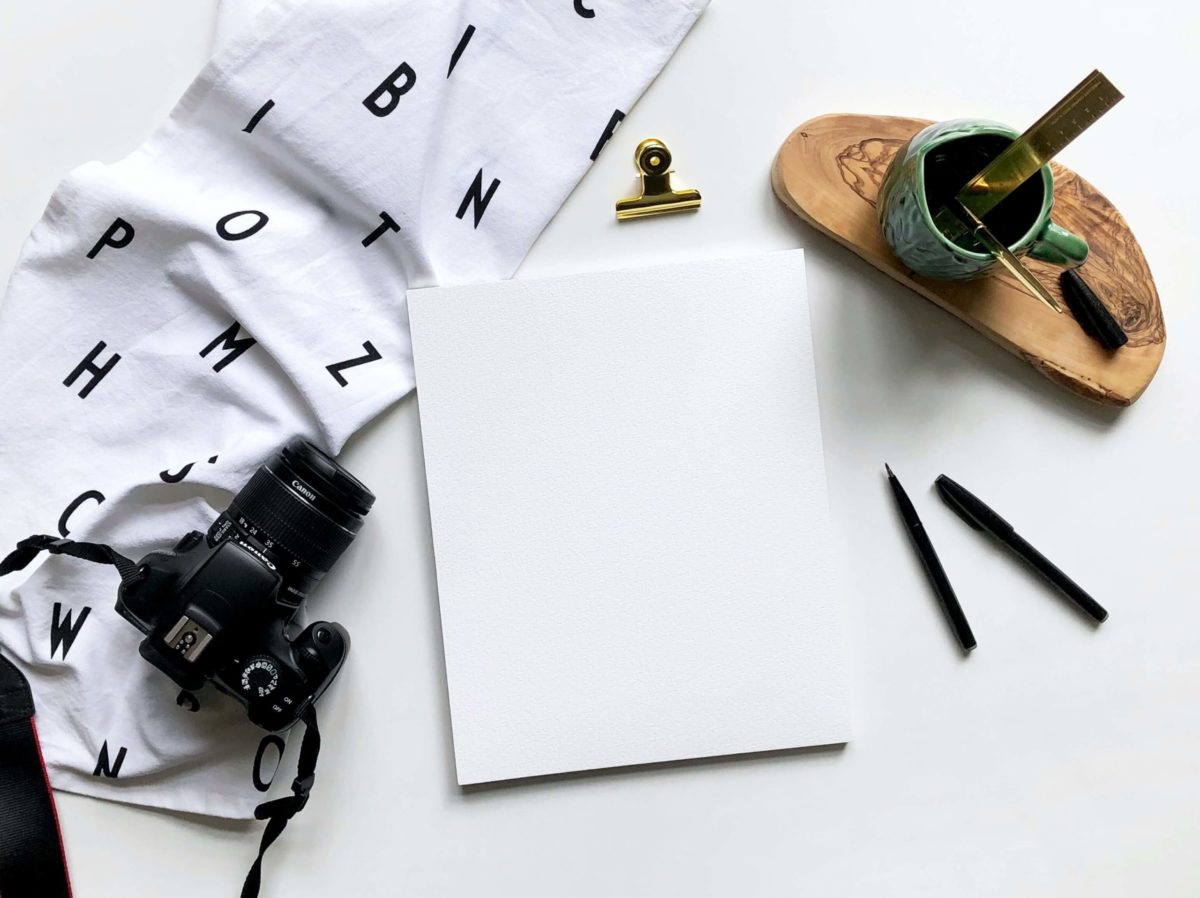5 Fundamental Tools for Your Writing Station
Staying committed to your writing process can be difficult. Obstacles like busy schedules, imposter syndrome, and the dreaded writer’s block all threaten a creative routine. While poets might not be able to control their level of inspiration, they can better prepare themselves to achieve their poetry flow state by keeping their writing space stocked. These must-have items empower poets to engage more fully in their craft.
High-quality pens or pencils
While pens might not prove exciting to the general public, they often inspire passionate debates among poets and writers. In other words, if you have a favorite pen, you might be a poet. While I favor Pilot G2s, other common recommendations include Uni-ball Jetstreams, InkJoys, and Seltzer’s Seven Year Pens. No matter the pencil or pen, having a signature writing utensil can make your poetry process feel special and ritualistic, encouraging you to maintain it. Do you prefer gel pens, ballpoints, brush pens, or rollerballs? Is a precise, fine tip more satisfying, or do you opt for a bolder stroke? Consider these questions for maximum comfort.
A notebook, laptop, or both
Along with something to write with, poets need somewhere for their words to land. The discussion of whether handwriting or typing drafts is better continues, but poets may want access to both methods. A notebook allows for imaginative freewriting and play, while a laptop lets poets see how their work will appear on the page. Oftentimes, poets toggle between these two tools to evaluate different drafts and analyze details. Moleskine notebooks mark a popular, luxurious paper option. Poets wanting a flash of fun might opt for the beloved ban.do brand. Lastly, the poet Michelle Boisseau famously recommended the classic spiral notebook, ideal for eliminating pressure and offering plenty of pages.
Trusted books on writing
Typically, writing is a solitary act, but turning to mentors can help poets feel less alone. Credible and motivating books on writing serve as a guide, and might even present prompts. A Poetry Handbook by Mary Oliver, The Poet’s Companion by Kim Addonizio and Dorianne Laux, and The Life of Poetry by Muriel Rukeyser are a few suggestions for your shelf. The Barbara Abercrombie classic A Year of Writing Dangerously: 365 Days of Inspiration & Encouragement contains a year’s worth of prompts for any writing style. Along with writing guidebooks, keeping a few favorite books of poetry nearby can be effective. Whenever you’re feeling a lack of drive, their stanzas can remind you of the power of poetry and how every great manuscript must begin by just getting started.
Supportive, ergonomic furniture
Writers often suffer from bad posture, and it’s easy to guess why—long hours at a desk can produce serious strain. Your space should support you, and your poetry process should never be physically painful. Find solutions that work for you, depending on your budget. While trendy standing desks can be expensive, a mesh chair, cushioned lap desk, or plush body pillow with armrests count among affordable options.
Your favorite details
Though there are certain indisputable things that every poet needs, boosting the energy of your writing space also relies on customization and small elements that feel completely you. Incorporating too much decoration can make a space feel cluttered—leading to a counterproductive impact on your writing—so carefully pick and choose your writing station accessories. Maybe it’s a soothing candle, a letter board featuring a favorite quote, visually intriguing wall art, or a dedicated mug that signals it’s writing time. Whatever the case, make these add-ons specific to your poetry setting and designed to get you in the right, writerly headspace.
Does this list have you looking ahead towards the holidays? Create your ideal writing space—or help furnish someone else’s—with our latest Read Poetry gift guide (and look out for our upcoming 2020 gift guide). Happy writing!




